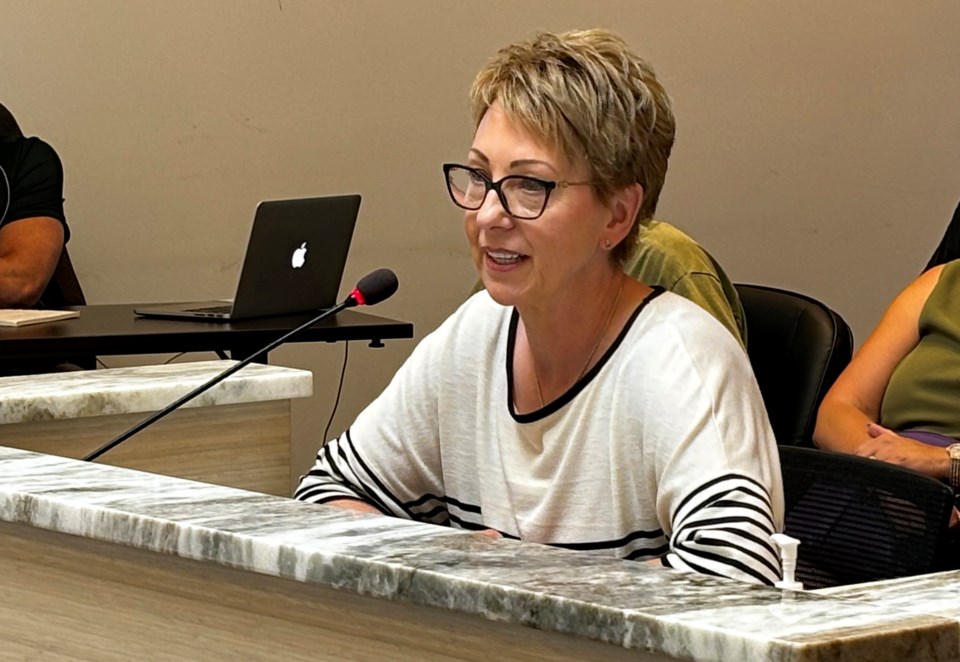INNISFAIL – Angela Shewchuk wants to change a narrative.
She’s a big believer that vulnerability must be viewed as a strength instead of a weakness.
For Angela, the narrative must change, for both mental and “brain” health.
“Vulnerability builds trust, and when you have trust, you can share, and when you can share that helps your mental and brain health,” said Shewchuk. “It's all about the sharing and learning to be vulnerable in our world, and looking at vulnerability as a strength instead of a weakness; changing that narrative, right?
That change for Shewchuk began with the most devastating and heartbreaking moment imaginable.
On Jan. 17, 2023 her son Alex Shewchuk died by suicide, a week shy of his 23rd birthday.
Alex was working in Winnipeg as a mechanical engineering tech, and appeared destined to have a fulfilling life.
“He had no history of mental health issues whatsoever. He was doing so well in his life,” said Angela.
Today, Sept. 10, is World Suicide Prevention Day, and Angela has an important life-altering message to offer.
It was a month ago on Aug. 12 when the Innisfail mother appeared at town council to let them know she and husband Don are starting a peer-led suicide loss support group.
The new support group in town will be called the Innisfail Suicide Loss Bereavement Support Group.
Angela hopes to have the group start its first meeting later this month.
“We've been in the community since 2010 and we were away for about five years, but moved back after Alex passed away, just to be part of this community,” Angela told council. “We love the town and so, if anybody knows of anybody who could use this, it was wonderful for us.”
Her journey from her unimaginable loss began the following April when she and Don began a 12-week surviving suicide loss support group facilitated by The Outreach Centre in Red Deer.
Once that was completed the couple entered a second one in June, which they completed in December.
“As I was finishing that first support group I really felt that I wanted to go in a direction of helping others because I was finding that just through this collaborative and supportive group with people who had been through similar loss it was such a benefit,” said Angela. “While the professionals were helpful, it was also a tremendous help to know we weren't alone.
“It's a very isolating type of grief and loss, so I felt that would be really instrumental in my healing to be able to do this at one point when I would be ready for it,” said Angela.
She said the new support group for Innisfail will go for either 10 to 12 weeks for those who have suffered a loss by suicide and are working through that grieving process to be with others who are at different stages with their own loss.
“This is a peer led support group to talk through and walk through this journey together and be of support to each other, and know we are not alone,” said Angela, adding each meeting will be an hour and half long. “It will be more of a free flowing, organic type of a format. We will be going through where everybody is at.
“When people are in grief, especially if it's early on, their cognitive abilities, their memory, all of these things, are so compromised. So, it really is a space of togetherness. We will take it session by session, and kind of flow through and go where the group goes because there is no hard and fast (rules)where we have this formula.
“You might get somebody who lost their person a year and a half ago. You might get someone who lost their person two months ago. There's a lot of different things going on based on those individuals; relationship with that person, their time in all of these things.”
She also has the ongoing support from The Outreach Centre if people want to explore professional resources, or have specific questions.
Mostly, she wants people, especially men, to start talking about suicide, and getting the issue into schools, and yes, changing long held narratives.
“We talk about illnesses of the brain, that we are open, and we're talking about it no differently than talking about if we had a broken leg or our pancreas wasn't working and we had diabetes. The difference is that with brain illnesses often thoughts are the symptom.
“This is the conversation I'm starting, and because this is my world and these are my people this is where I'm starting with this journey, and it's not going to stop here. It's going to go a long way. This is the journey I'm on now.”



